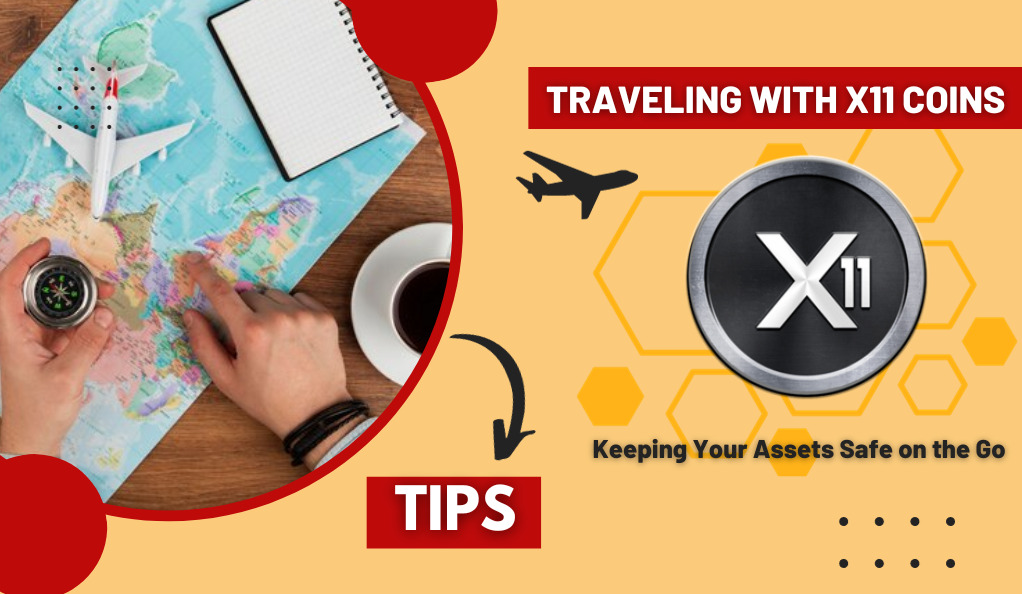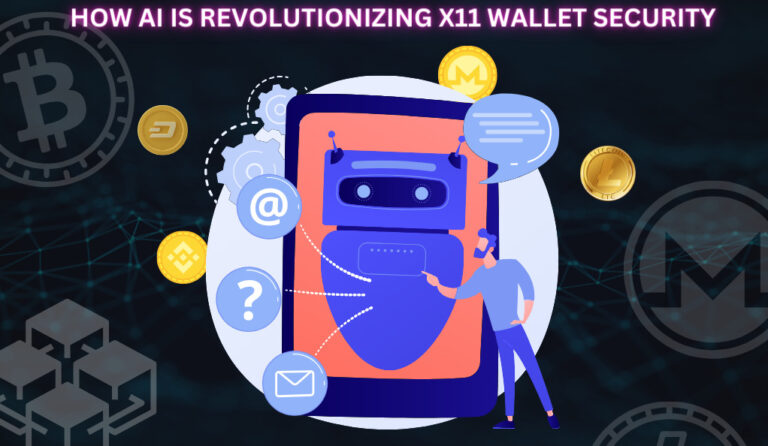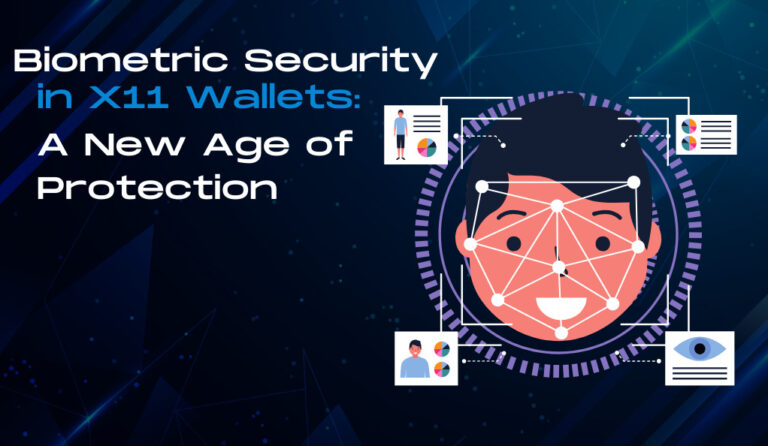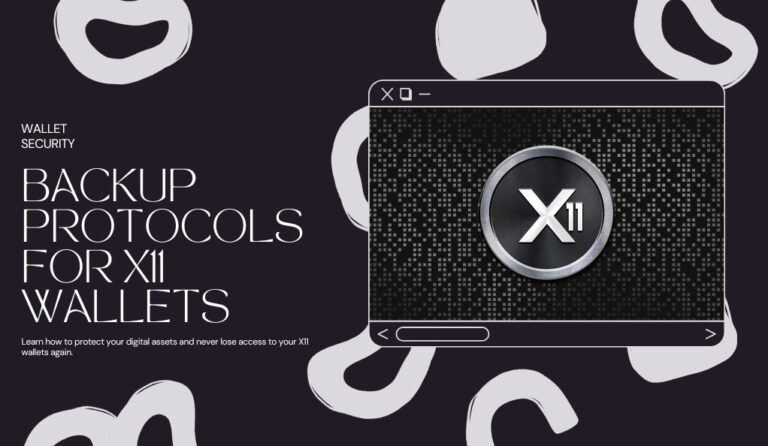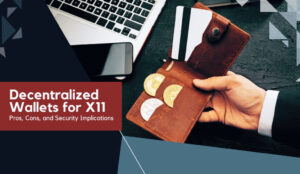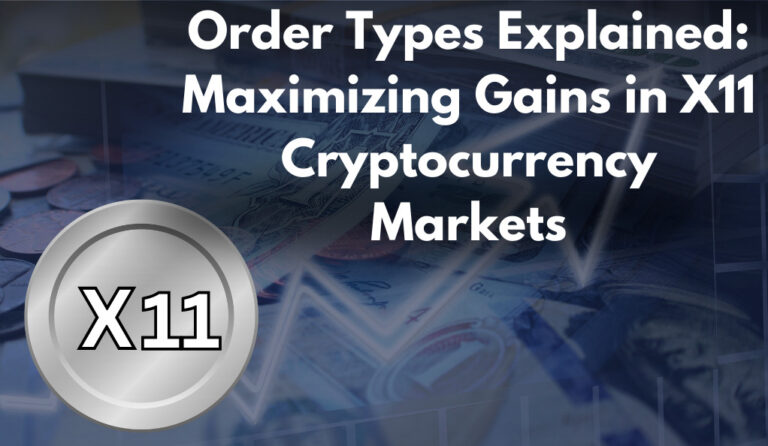In today’s digital age, cryptocurrencies have emerged as a revolutionary medium of exchange, offering users unprecedented levels of security, privacy, and financial freedom. Among these, X11 Coins have carved a unique niche, known for their advanced encryption techniques and robust security features. As more individuals incorporate digital assets into their daily lives, it’s not uncommon to find travelers wanting to access, trade, or use their X11 Coins while on the go. However, with the conveniences of digital currencies also come potential risks, especially when one is away from the security of their home networks and familiar environments.
Brief Overview of X11 Coins
X11 Coins, without delving too deep into the technical jargon, are a type of cryptocurrency that utilizes a unique hashing algorithm, comprising 11 different cryptographic functions. This multi-layered algorithmic approach ensures that X11 Coins offer a higher level of security and are more energy-efficient when it comes to mining, compared to some other cryptocurrencies.
| Characteristic | Description |
|---|---|
| Algorithm | X11 |
| Security | High due to 11 different cryptographic functions |
| Efficiency | More energy-efficient in mining processes |
| Popularity | Rising steadily due to enhanced features and security |
The Rise of Digital Assets in Travel
As the world becomes more interconnected, the boundaries separating countries and cultures are increasingly blurred. Digital nomads, business travelers, and even holidaymakers are now more tech-savvy than ever. This shift has led to a rise in the use of digital assets, including X11 Coins, during travel. Whether it’s booking accommodations, paying for services, or simply wanting to have a global currency that isn’t tied to traditional banking systems, the applications are vast and growing.
Choosing the Right Digital Wallet for Travel
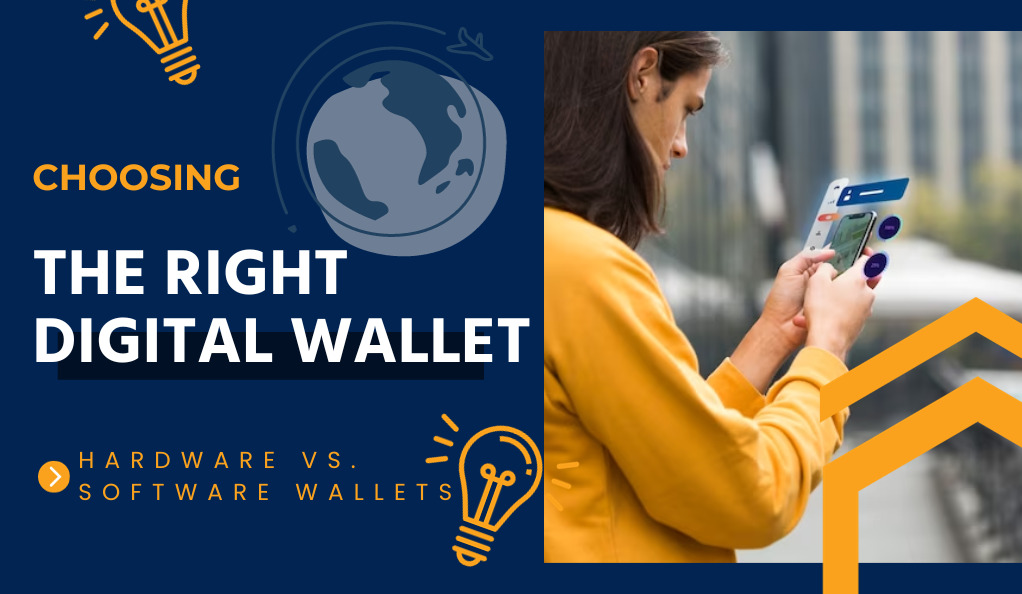
Selecting the ideal digital wallet is a pivotal step in ensuring the security of your X11 Coins, especially when you’re on the move. The right wallet not only offers ease of access but also provides essential security features to guard against potential threats.
Hardware vs. Software Wallets: Pros and Cons
Hardware Wallets: These are physical devices, similar in size to a USB stick, designed to store your cryptocurrency offline, making them immune to online hacking attempts.
| Advantages | Disadvantages |
|---|---|
| Extremely secure due to offline nature | Can be physically lost or stolen |
| Immune to viruses and malware | Initial cost investment |
| Supports multiple cryptocurrencies | Requires careful handling (e.g., avoiding water) |
Software Wallets: These are applications or software installed on devices like computers, tablets, or smartphones. They’re connected to the internet, making transactions quick and convenient.
| Advantages | Disadvantages |
|---|---|
| Easy to set up and use | Vulnerable to online threats |
| Quick transactions | Dependence on device health (e.g., phone crash) |
| Often free or low cost | Potential compatibility issues across devices |
Recommendations for the Best Travel-Friendly Wallets
For travelers, a balance between convenience and security is essential. Below are some suggestions tailored to the needs of those on the go:
- Hybrid Wallets: These wallets combine the best of both worlds. They’re primarily hardware-based but come with software interfaces for easier transactions. A notable example is the “CryptoGuard Hybrid,” known for its compact size and user-friendly interface.
- Mobile Software Wallets: Opt for wallets with strong security features, like biometric access and two-factor authentication. “X11 PocketSecure” is a popular choice among X11 Coin users, offering both security and mobility.
- Paper Wallets: Though old-fashioned, paper wallets can be an excellent choice for travelers. They involve printing out your cryptocurrency private and public keys and can be securely stored in a travel safe or even a money belt.
The Role of VPNs in Protecting Your X11 Coins
When discussing the security of digital assets during travel, it’s impossible to overlook the significance of Virtual Private Networks (VPNs). These tools play a vital role in safeguarding your online activities, especially in unfamiliar terrains where network threats might be rampant.
How VPNs Enhance Transaction Security
A VPN encrypts your internet connection, ensuring that all data sent or received is shielded from prying eyes. This is especially crucial when dealing with financial transactions involving cryptocurrencies like X11 Coins. Here’s how a VPN can be instrumental:
Public Wi-Fi Protection
Public networks, such as those in airports, cafes, and hotels, are breeding grounds for cyberattacks. A VPN ensures that even if you connect to these networks, your transaction details remain confidential.
Location Privacy
VPNs can mask your actual location by routing your connection through servers from different parts of the world. This adds an extra layer of anonymity to your online activities.
Avoiding Censorship
Some countries have strict regulations or bans on cryptocurrency usage. A VPN can help bypass such restrictions, allowing you to access your digital assets without any hindrance.
Top VPN Services for Crypto Users
When choosing a VPN, it’s essential to select one that prioritizes security and has a track record of reliability. Here are some top recommendations for cryptocurrency enthusiasts:
- CyberSecure VPN: Known for its robust encryption standards and a strict no-logs policy, making it ideal for crypto transactions.
- TunnelGuard: Offers high-speed connections, ensuring that your crypto trades or transfers aren’t delayed. It also boasts a vast network of servers worldwide.
- PrivacyNet: This VPN service is favored for its user-friendly interface and dedicated cryptocurrency security features, such as an integrated kill switch that halts all activities if the VPN connection drops unexpectedly.
It’s worth noting that while free VPN services exist, they often come with limitations and might not provide the security level necessary for cryptocurrency dealings. Investing in a reputable paid VPN service is a small price to pay for the heightened security of your X11 Coins.
Backup Strategies: Preparing for the Unexpected
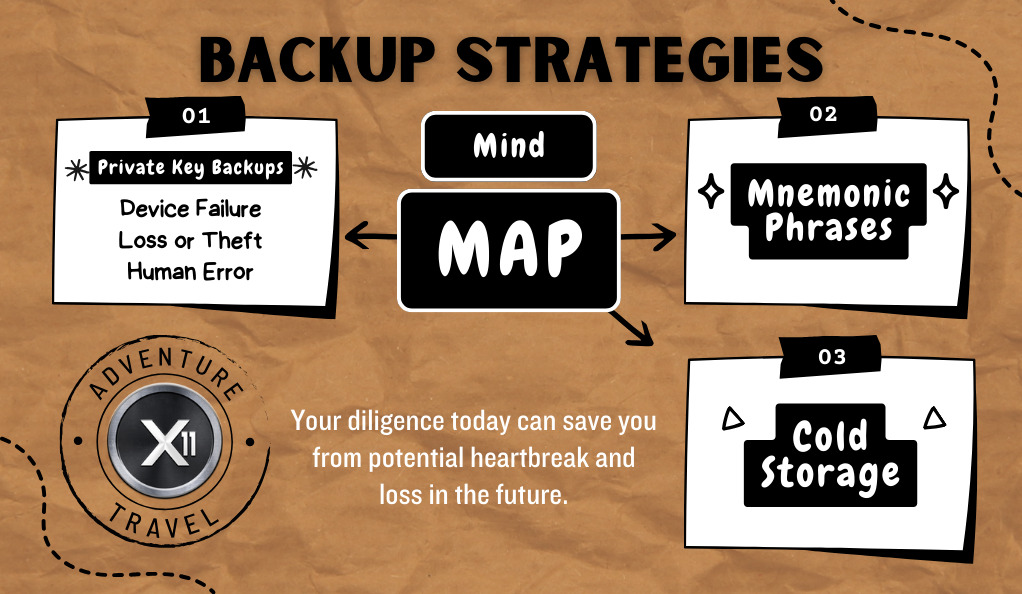
One of the most essential yet often overlooked aspects of cryptocurrency management is having a solid backup strategy. In the realm of digital assets, the phrase “not your keys, not your coins” reigns supreme. It signifies the importance of having access to your private keys, as losing them could mean losing your X11 Coins forever.
Importance of Private Key Backups
Your private key is a unique alphanumeric code that grants you access to your cryptocurrency holdings. It’s the digital equivalent of a physical key to a safety deposit box. Here’s why backing up this key is vital:
- Device Failure: Whether you use a software wallet on your smartphone or a hardware wallet, devices can fail. Having a backup ensures you can still access your funds.
- Loss or Theft: Especially while traveling, there’s a risk of losing your device or having it stolen. A backup provides a recovery avenue in such scenarios.
- Human Error: Unintentional deletion or misconfiguration can sometimes lock users out of their wallets. With a backup, regaining access becomes feasible.
Using Mnemonic Phrases and Cold Storage
To bolster the security of private key backups, many wallets incorporate mnemonic phrases and cold storage solutions:
Mnemonic Phrases: Typically, these are sequences of 12 to 24 words that act as a recovery phrase for your wallet. They are easier to jot down and remember than complicated private keys. It’s crucial to store this phrase securely, away from prying eyes.
Cold Storage: This refers to storing your private keys or mnemonic phrase offline, detached from internet-connected devices. Options include paper wallets, engraved metal cards, or even specialized cold storage devices. They are impervious to online hacking attempts and are ideal for storing large amounts of X11 Coins.
For travelers, consider having multiple backup methods. For instance, keep a mnemonic phrase written down in a secure location and have a cold storage device stored separately. This redundancy ensures that even if one backup method fails, another is available.
Beware of Public Wi-Fi: Avoiding Common Pitfalls
As alluring as free public Wi-Fi might seem, especially when traveling, it’s a potential minefield when it comes to the security of your X11 Coins. These networks, often found in cafes, airports, and hotels, are frequently targeted by cybercriminals due to their lax security measures.
Risks Associated with Public Networks
- Man-in-the-Middle Attacks: In this type of attack, a malicious actor intercepts the communication between your device and the network, potentially gaining access to sensitive information like your wallet credentials.
- Eavesdropping: Unencrypted networks allow hackers to ‘listen in’ on any data you transmit, including login details and transaction information.
- Spoofing: Cybercriminals can set up rogue Wi-Fi hotspots with names similar to legitimate networks, tricking users into connecting to them.
- Malware Distribution: Some public networks might be compromised to automatically download malware onto connected devices.
Safe Practices When Accessing Your Assets
To mitigate the risks of public networks, consider adopting the following practices:
- Use a VPN: As previously discussed, a VPN encrypts your data, making it challenging for hackers to decipher the information, even if intercepted.
- Forget the Network After Use: Ensure your device forgets the network after you disconnect. This prevents automatic reconnections in the future which could expose you to risks.
- Turn Off Sharing: Disable any file or data sharing settings on your device to minimize exposure.
- Use HTTPS: If you need to access online platforms or exchanges, ensure the website uses HTTPS (look for the padlock symbol in the address bar). This ensures the data exchanged with the site is encrypted.
- Limit Access: Avoid accessing your main cryptocurrency wallets on public networks. If necessary, consider having a separate mobile wallet with limited funds for travel purposes.
Physical Safety Measures: Keeping Your Hardware Wallet Secure
While digital threats are a significant concern, the physical security of your cryptocurrency storage devices, especially hardware wallets, cannot be overlooked. When you’re traveling, the risk of misplacing or having these devices stolen increases, making it essential to implement safety measures.
Tips for Discreetly Carrying a Hardware Wallet
- Camouflage: Consider keeping your hardware wallet in everyday items like a pencil case or inside a book. This makes it less obvious and reduces the chances of it being recognized as something valuable.
- Avoid Flashiness: Choose hardware wallets that are discreet in design. Brands that aren’t overtly flashy or branded with cryptocurrency logos tend to draw less attention.
- Distribute Assets: If you’re traveling with a significant amount of X11 Coins, consider using multiple hardware wallets. This way, even if one is compromised, you don’t lose all your assets.
- Safe Storage: When not in use, store your wallet in the hotel safe or any other secure location you have access to while traveling.
What to Do in Case of Theft or Loss
- Immediate Action: If you suspect your hardware wallet has been stolen, move your funds to another wallet using a backup or mnemonic phrase as soon as possible.
- Report to Authorities: While the chances of recovery might be slim, it’s always a good practice to report thefts to local law enforcement.
- Review and Learn: Analyze the situation to understand how the loss occurred. Learning from such experiences can prevent similar incidents in the future.
- Stay Calm: Remember, if you’ve been diligent with backups and mnemonic phrases, the loss of the physical device doesn’t mean the loss of your X11 Coins. The primary purpose of hardware wallets is to keep your private keys offline and safe from digital threats. Even if the device is lost, your assets are safe as long as the private key or mnemonic phrase remains confidential.
Educating Yourself: Staying Updated on the Latest Threats
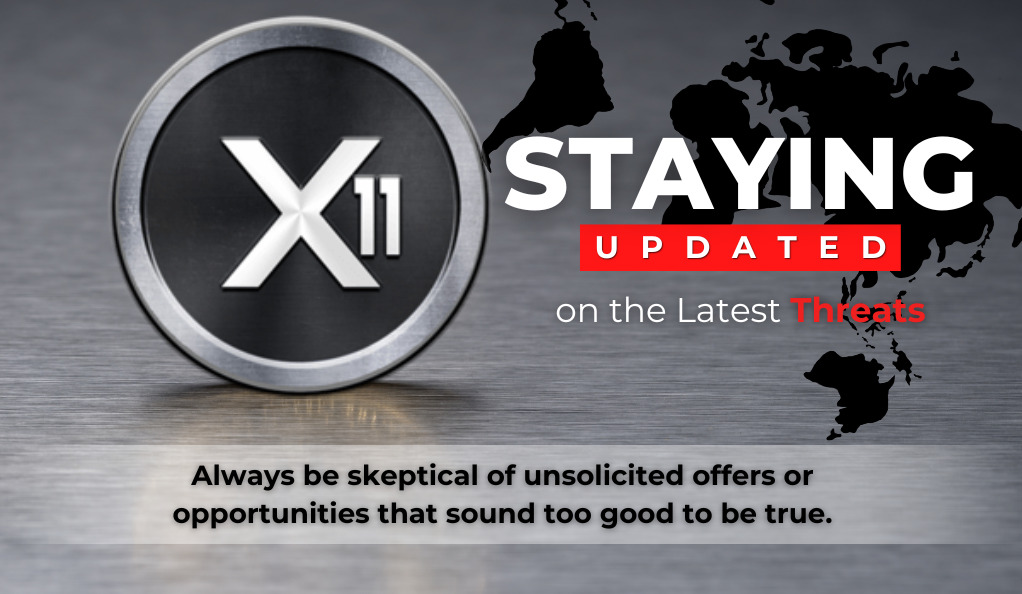
In the rapidly evolving world of cryptocurrencies, knowledge truly is power. The threats faced by X11 Coin holders today might not be the same as those they’ll encounter tomorrow. Continuous education and staying updated on the latest in crypto-security is not just beneficial—it’s essential.
The Evolving Landscape of Crypto-Related Scams
Cryptocurrency scams have, unfortunately, become more sophisticated over the years. From phishing emails that mimic official crypto exchanges to fake mobile apps designed to steal your private keys, scammers are continuously devising new tactics. Some prevalent scams include:
- Ponzi and Pyramid Schemes: These involve promises of high returns with little to no risk. New investors’ funds are used to pay previous investors until the scheme collapses.
- Fake ICOs (Initial Coin Offerings): Scammers create fake projects, lure investors with the promise of high returns, and then disappear with the funds.
- Ransom Attacks: Hackers can lock you out of your device, demanding payment in cryptocurrency to restore access.
- Impersonation: Scammers may pretend to be trusted figures in the crypto community or support agents from reputed exchanges to deceive users.
Importance of Ongoing Crypto Education
- Stay Updated: Regularly visit trusted cryptocurrency news sources and forums. This keeps you informed about emerging threats and the latest security measures.
- Workshops and Webinars: Many organizations and crypto communities host educational sessions focusing on security. Participating in these can offer valuable insights.
- Engage with the Community: Joining cryptocurrency groups, forums, or online communities can be beneficial. These platforms often act as early warning systems for new scams or threats.
- Test Your Knowledge: Periodically, test your understanding by participating in crypto security quizzes or simulations.
Conclusion: Embracing the Digital Age with Confidence
In the digital era, where cryptocurrencies like X11 Coins offer both incredible opportunities and unique challenges, preparedness and knowledge become paramount. From selecting the right digital wallets and the importance of VPNs to the nuances of physical security and the value of continuous education, each safety measure plays a crucial role in ensuring a smooth and secure travel experience with your digital assets.
As you venture into this exciting realm of decentralized finance, it’s essential to approach with both caution and curiosity. Your X11 Coins are not just tokens of value but symbols of a future defined by financial freedom and global accessibility. By staying informed and vigilant, you’re not only safeguarding your assets but also actively participating in shaping a promising digital future. Safe travels!
At axerunners.com, our goal is to furnish well-rounded and trustworthy information regarding cryptocurrency, finance, trading, and stocks. Nonetheless, we avoid providing financial advice and instead encourage users to conduct their own research and meticulous verification.
Read More
